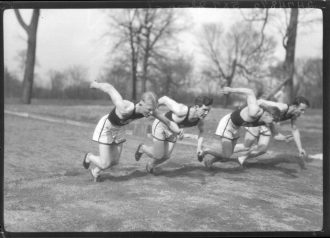
February 20, 2019
Chris Cauble Talks about Patentable Subject Matter in SoundCloud Interview
Dallas patent attorney Chris Cauble is featured in a new SoundCloud interview for Pharma Intelligence in which he talks about the recent ambiguity over patent subject matter eligibility and the related complications for digital health companies.
The ambiguity stems most recently from three court cases, each with a distinct interpretation of 101 issues in its final decision, as well as the new guidance issued by the United States Patent and Trademark Office. The cases are Exergen Corp. v. Kaz USA, Vanda Pharmaceuticals Inc. v. West-Ward Pharmaceuticals, and Athena Diagnostics, Inc. v. Mayo Collaborative Services, LLC.
In Exergen, Cauble says, the Federal Circuit said their device for reading body temperature is patent eligible, even through it relies on the naturally occurring relationship between core body temperature and the temporal artery, because it found a new way to read that relationship. Similarly, in Vanda Pharmaceuticals, their innovative way of treating patients with schizophrenia and making adjustments based on body chemistry is patent eligible because it identifies a natural phenomenon and then makes adjustments based on it.
In Athena, however, a new way of diagnosing the neurological disorder myasthenia gravis is not patent eligible because it relies solely on identifying certain antibodies in the blood. Even though the relationship between the antibodies and the disease was not previously known, the court still ruled against them.
Frustrations arise, as Cauble points out, over the fact that “there’s really strong analysis for both sides,” but it seems to come down to “which panel you happen to get, you’re going to either come out on the right side or the wrong side.”
The USPTO guidelines issued to patent examiners in January should help simplify the process of determining subject matter eligibility. Examiners will be looking at the patent and deciding if it falls into one of three groupings of abstract ideas — mathematical concepts, certain methods of organizing human activity, and mental processes — and deciding whether or not the application includes enough other steps or practical devices to arrive at an outcome. The overarching plan, Cauble suggests, is to ensure that the “monopoly” that a patents offers is not “a monopoly over the entirety of [a] natural phenomenon.”
For medtech companies specifically, Cauble recommends including as much detail and real-world application into patent applications as possible. “You’re going to want to associate that method or associate that machine learning with things that are occurring in the natural world and things that you are somehow controlling within the natural world.”
…
Read the full transcript on the Medtech Insight website.


